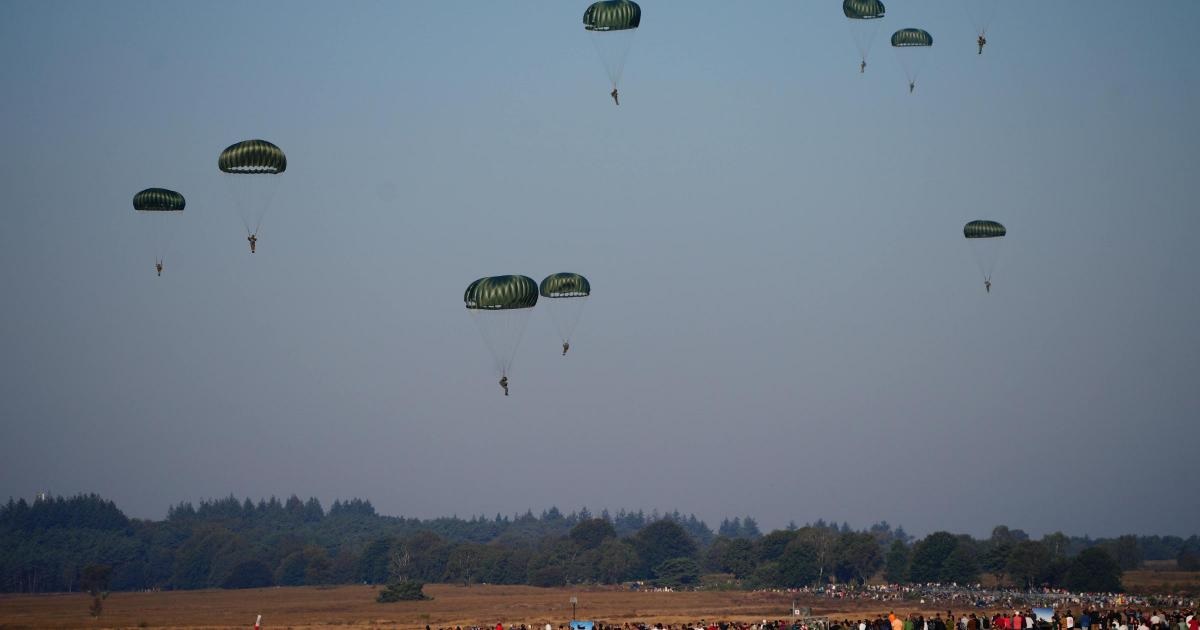
Paratroopers commemorate 80 years since operation market garden in Arnhem
Hundreds of NATO paratroopers dropped near Arnhem, Netherlands, on Saturday, marking the 80th anniversary of Operation Market Garden, a significant Allied military operation during World War II. This event commemorates the battle that aimed to secure a Rhine crossing, famously referred to as "A Bridge Too Far."
The parachute drop involved soldiers from various NATO member countries, including Germany, who descended onto a heath close to Arnhem. Approximately 60,000 spectators, including a small group of World War II veterans, attended the reenactment. Arnhem's mayor, Rene Verhulst, noted that the location symbolizes the courage and sacrifice displayed during the airborne landings of 1944.
King Willem-Alexander of the Netherlands also participated in the ceremony, laying a wreath to honor the soldiers who sacrificed their lives for freedom. Member of Parliament Annemarie Heite expressed gratitude for the sacrifices made, emphasizing the importance of remembrance.
Among the attendees were twelve veterans of the operation, including 99-year-old Geoff Roberts, a former member of the 7th Battalion Kings Own Scottish Borderers. Roberts recounted his experience of landing in a glider and the subsequent challenges faced due to adverse weather conditions and German resistance. He was ultimately captured and became a prisoner of war.
Operation Market Garden, initiated a few months after the D-Day landings, aimed to bypass Nazi defenses by securing key bridges and highways in the Netherlands. The operation involved nearly 35,000 airborne troops, with British, American, and Polish forces taking the lead, supported by Canadian troops and local resistance fighters. While the primary objective of capturing the bridge at Arnhem was not achieved, significant territorial gains were made, including the liberation of Eindhoven and Nijmegen.
The operation came at a steep cost, with approximately 11,500 Allied troops killed, surpassing casualties from D-Day. The aftermath also resulted in dire consequences for civilians in the Netherlands, as German forces retaliated against the population by cutting off food supplies, leading to widespread starvation.
Recent burials of two soldiers, one British and one South African, whose remains were identified near the battleground, underscore the ongoing efforts to honor those who served. Allied forces eventually secured Arnhem in April 1945, shortly before Germany's surrender in May.
Stichworte







